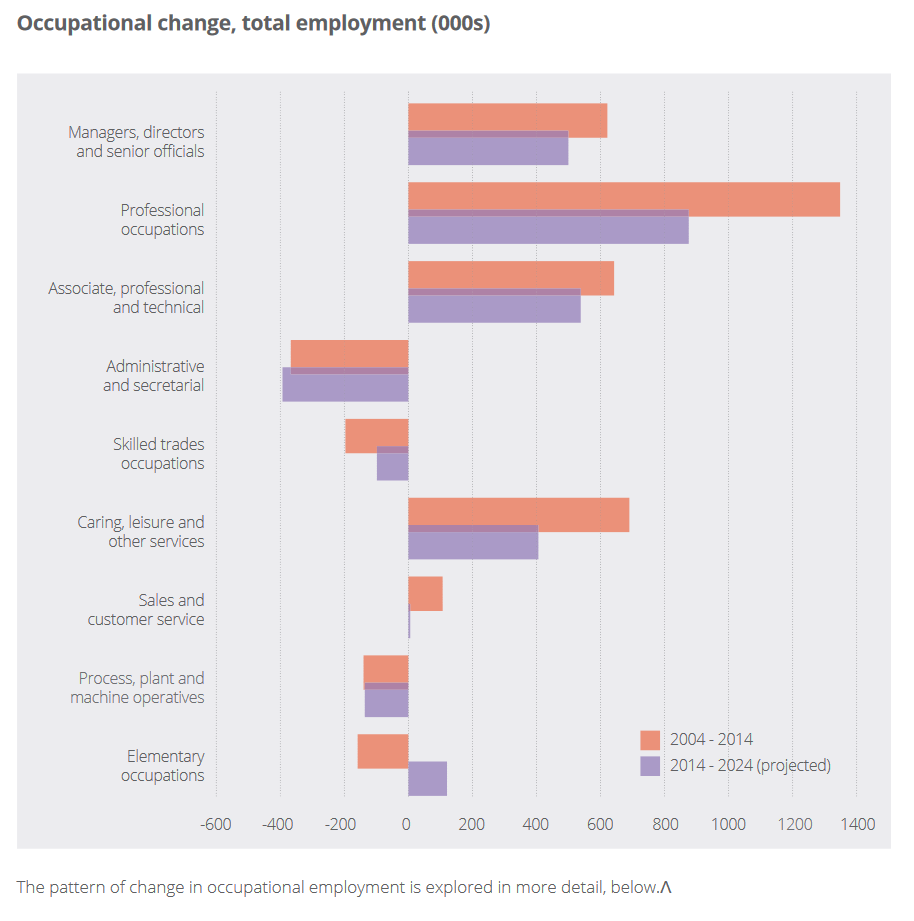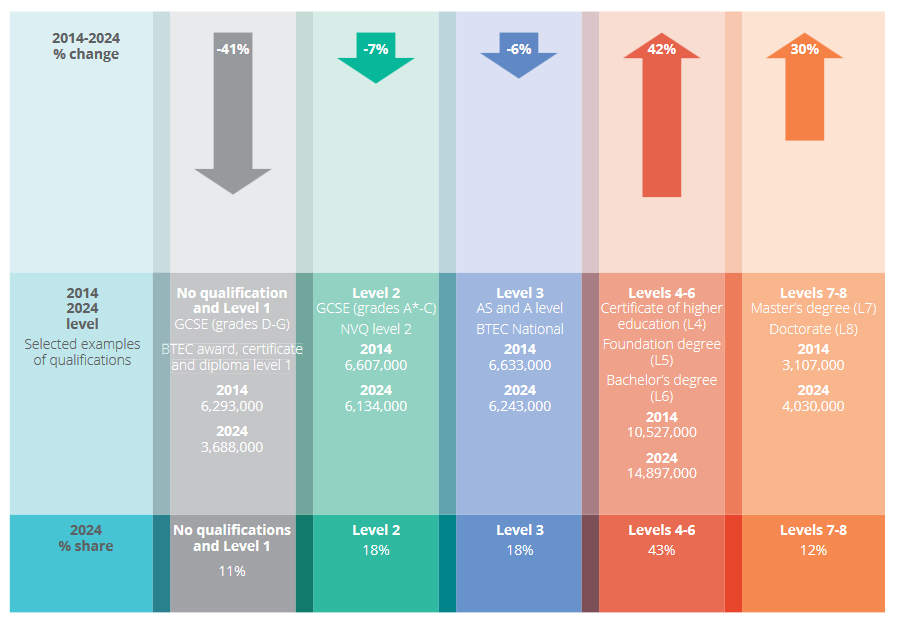Shared parental leave and higher qualifications to drive polarised labour market changes
- 3 Min Read
HR leaders will face booms in highly qualified employees, jobs in white collar technical professions and men working part-time within the next eight years.
- Author: Owain Thomas
- Date published: Apr 7, 2016
- Categories

Shared parental leave and other similar policies are expected to have a significant impact on the UK labour market over the next eight years.
The UK Commission for Employment and Skills (UKCES) also predicted a polarisation of job creation impacted by increasing automation.
By 2024 employees with at least a higher education certificate will form the majority of the workforce.
Research by the UKCES revealed women would take-up the majority of the 1.8 million new jobs expected to be created by 2024.
It also noted male part-time workers were set to be the fastest growing part of the workforce by 2024 – particularly those who could afford it in higher paid, higher skilled jobs.
The UKCES expected male part-time employment to grow by 20%, with this rising to 25% for higher paid roles.
It added the number of people self-employed will fall over the same period as men left this part of the workforce, while the number of women here stayed relatively static.
These changes could have a significant impact for employers as men increasingly prioritise family life and women become more career focused.
The report also found that between now and 2024:
- private sector business and consumer services were forecast to be the main engine of employment growth, contributing more than 90% of net additional jobs between 2014 and 2024
- business and other services activities such as professional services and information technology were expected to see the strongest rates of job growth
- the strongest employment growth was expected to be for higher skilled occupations, with close to two million jobs being added for managers, professionals and associate professionals over the course of the decade
UKCES deputy director Lesley Giles said: “While part-time work is most common in low paid professions and is largely dominated by women, this report shows the first signs of that trend changing.
“The increase in men working flexible hours has been catalysed by the right to shared parental leave, but seems to be gaining traction. Coupled with other changes, like the growth in jobs in sectors traditionally dominated by women, this could represent a real change in the way people work and the way we understand gender roles in the labour market,” she added.
White collar expansion
The UKCES suggested strongest job growth would be for white collar work and some lower skilled jobs which were harder to automate.
White collar roles expected to grow included mangers, most professional occupations and many technical roles.
Caring, leisure and other service occupations were those manual jobs expected to increase.
Meanwhile administrative and secretarial roles were expected to see the greatest reduction in numbers, along with a continued decline in manufacturing jobs. (see UKCES graph below)
Upskilling the workforce
Finally, the UKCES predicted a continued growth skills within the workforce, with this being particularly so in higher level qualifications.
It expected the majority of jobs by 2024 to be held by employees with at least a higher education qualification.
Meanwhile, employees with the fewest qualifications (or none at all) would see the sharpest decline over the period.
The body acknowledged that these trends were inter-linked with the supply of more skilled workers and increasing demand from employers.
However, given it admitted it was not easy to tell which of these factors was the biggest force in the upskilling of the workforce.











